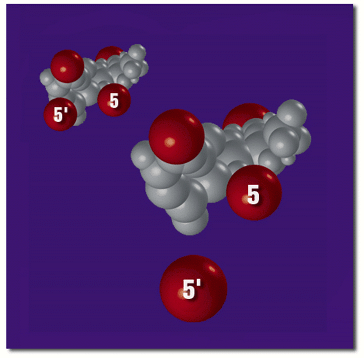|
Thyroid Science 11(1):CLS1-18, 2007

Metabolic Failure as
the Cause of Fibromyalgia Syndrome: Exploring the John C. Lowe
Thesis
(Full
Text Free in pdf format)

Bjørn Johan Øverbye,
MD*

*Postbox 348 –N4803, Arendal,
Norway, Contact: bjorn@dr-overbye.no
Abstract.
Introduction and Aim. The aim
of this one year project was to investigate a thesis by John C.
Lowe: that fibromyalgia syndrome (FMS) is a hypometabolic
condition caused by a reduced effect of thyroid hormones at the
cellular level, due either to (1) a deficiency of adequate thyroid
hormone (hypothyroidism), or (2) a reduced cellular effect of
thyroid hormone despite its production of reference range quantities
(partial peripheral thyroid hormone resistance).
Material and Methods.
Study subjects were 56 female patients with a
clinical picture of "classical FMS." The diagnosis of FMS was
verified by specialists for 27 of the patients. Although 29 patients
had the classical signs and symptoms of FMS, they were waiting for
their diagnosis to be verified by specialists. These 29 patients
were excluded from the investigation until a later date when a
qualified specialist will verify beyond doubt their correct
diagnostic label.
To test Lowe’s thesis, a
questionnaire was made. The basis of the questionnaire was the
already-existing statistics of symptoms and signs of hypothyroid
patients who had not yet achieved metabolic restoration by the use
of thyroid hormone medication. The questionnaire was filled out by
all 56 patients. The answers from all patients were collected and
put into a database. The answers of patients with verified FMS were
extracted and compared to the statistical material upon which the
questionnaire was made.
In addition, all 27 patients
with verified FMS were tested for their thyroid hormone status at
the local hospital. Thirteen of the patients were tested with a
method developed by Professor Louis-Claude Van Vincent,[45]
"Van Vincent’s Bio-Electrical-Terrain-Analysis" (Van Vincent
BE-T-A). BE-T-A is a system that evaluates the metabolic status of
mesenchymal (structurally supportive) and parenchyma (essentially
producing) tissues.[16]
Results. Comparing the questionnaire answers of the
27 FMS patients with the statistics from hypothyroid patients, the
frequencies of symptoms fit a pattern of untreated
hypothyroidism. The Van Vincent BE-T-A test showed an acidosis of mesenchymal tissues, such as connective tissues and lymphatic and
blood vessels. The acidosis can be explained by a lack of thyroid
hormone effect at the cellular level, leading to an increase in parenchymal anaerobic metabolism, in which biological processes
proceed in the absence of oxygen.
Conclusion. The results
of questionnaire analysis, use of the Van Vincent BE-T-A testing,
and the author's clinical experience are consistent with the Lowe
thesis that metabolic failure underlies FMS. The cause of the
failure is plausibly explained by deficiencies of thyroid hormones
or reduced cellular effects of the hormones. There are two natural
solutions to this problem: (1) increase the amount of thyroid
hormones available to the tissues, and (2)
normalize the cellular effects of thyroid hormones by removing
whatever hinders their normal effects.
KEYWORDS: Fibromyalgia syndrome,
hypothyroidism, thyroid hormone resistance, Van Vincent BE-T-A test,
Bio-Electrical–Terrain-Analysis, energy medicine, John C. Lowe
Thesis
Bjørn Johan Øverbye. Metabolic Failure
as the Cause of Fibromyalgia Syndrome:
Exploring the John C. Lowe
Thesis. Thyroid Science, 11(1):CLS1-18, 2007.
(Full
Text Free in pdf format)
|
